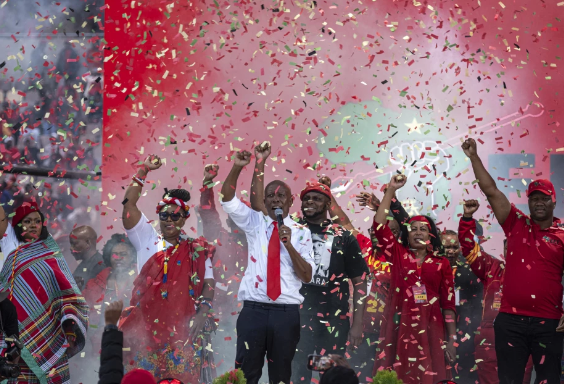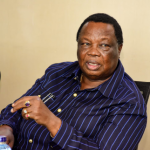South Africa’s opposition parties launched a final push on Sunday to challenge the African National Congress’ (ANC) three-decade dominance ahead of the upcoming general election.
The Democratic Alliance (DA) held a rally in Benoni, a town outside Johannesburg, where leader John Steenhuisen addressed supporters, emphasizing concrete achievements over empty promises and criticizing the ANC for the country’s current hardships, including poverty, unemployment, and crime.
Steenhuisen predicted that the ANC would lose its majority in the National Assembly, forcing it to seek coalition partners for the first time since it came to power in 1994. Despite polls indicating the DA won’t surpass the ANC as the largest party, the DA aims to form a coalition government with other smaller parties.
Former president Jacob Zuma, leading his uMkonto weSizwe (MK) party, also rallied against the ANC. Zuma, who is ineligible to run due to a contempt of court conviction, addressed supporters in Mpumalanga, an ANC stronghold, potentially drawing votes away from his former party.
Current president Cyril Ramaphosa, representing the ANC, faces significant challenges as public dissatisfaction grows due to power cuts, high crime rates, and soaring unemployment.
Although the ANC still holds support among many older black South Africans for its role in ending apartheid and its welfare programs, younger generations are increasingly disillusioned with the party’s governance.
Polls suggest the ANC could fall short of the 201 seats needed for a majority in the 400-member National Assembly, necessitating alliances with other parties to elect a president.
The DA, led by the 48-year-old white politician Steenhuisen, promotes liberal economic reforms and privatization, contrasting with the ANC’s focus on economic and political equality.
The ANC has warned that a DA-led government could reverse progress on equality and empower a wealthy white elite. However, many black DA supporters at the rally in Benoni expressed optimism about giving the DA a chance to lead and addressing the country’s challenges.
Approximately 27 million South Africans are registered to vote on May 29. The election results will determine the composition of the National Assembly, which will then elect the president.
With the ANC likely to fall below 50 percent, South Africa could enter a new political era marked by coalition governance and increased political competition.



